‘Terrible’: Sara Duterte impeachment ruling sparks Philippine constitutional row
Critics decry the decision as ‘judicial overreach’, warning it sets a ‘terrible’ precedent that could shield officials from accountability
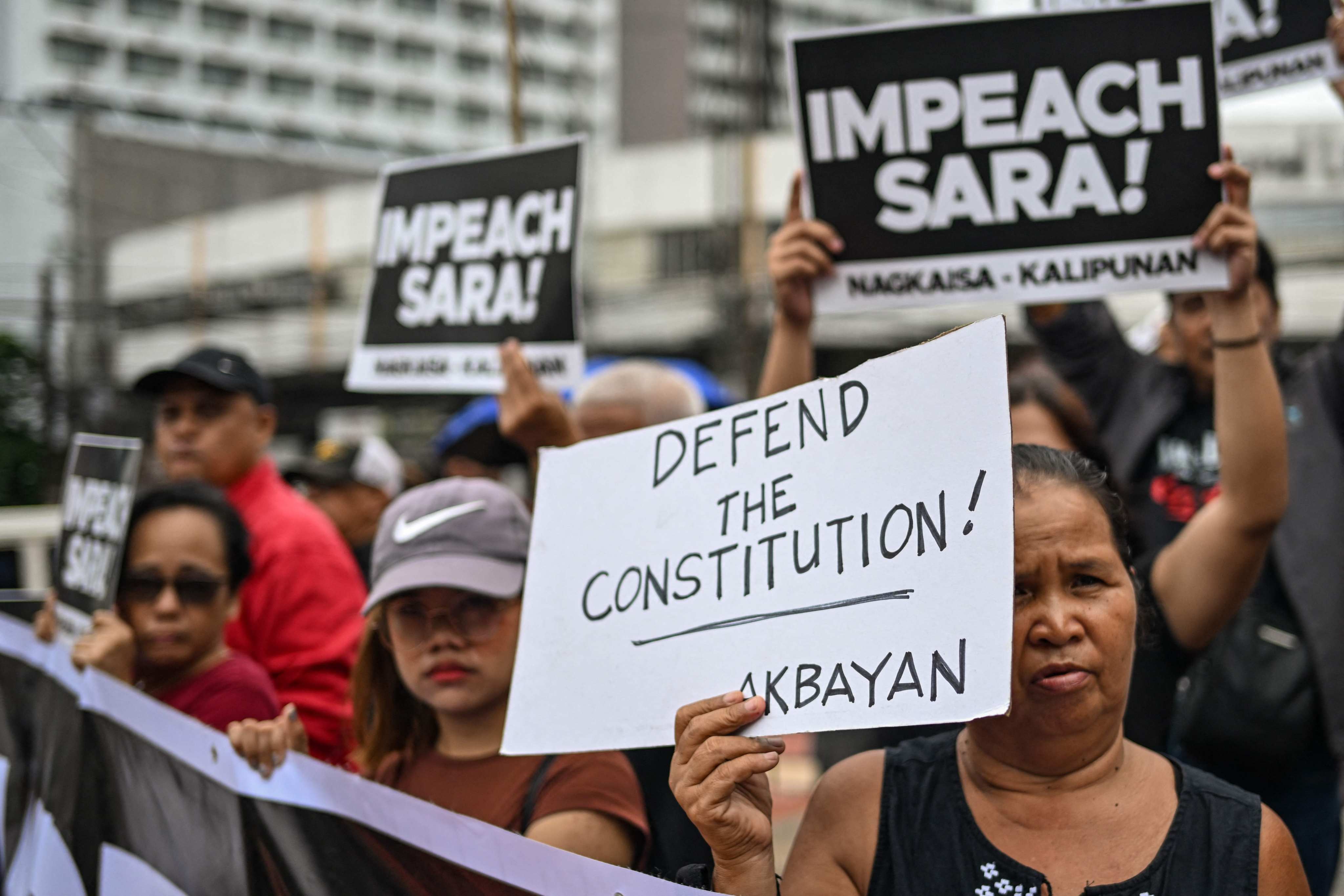
Monday’s opening of the Philippines’ Congress has been thrown into chaos by a Supreme Court ruling that effectively killed the long-awaited impeachment trial of Vice-President Sara Duterte-Carpio.
The Supreme Court’s decision, delivered late on Friday, quashed the Senate’s long-delayed trial on a technicality, ruling that the impeachment violated the constitutional “one-year rule” against multiple proceedings within a year for the same official.
The fallout has cast a pall over what would otherwise have been a self-congratulatory celebration, in the form of the president’s state of the nation address to Congress on Monday.
On Sunday, the presidential palace issued a statement stating that President Ferdinand Marcos Jnr’s administration “respects but disagrees with the ruling”. The 15-member court’s decision does not exonerate Duterte-Carpio, nor does it bar future impeachment attempts, but – if followed – it effectively postpones any new proceedings until 2026.
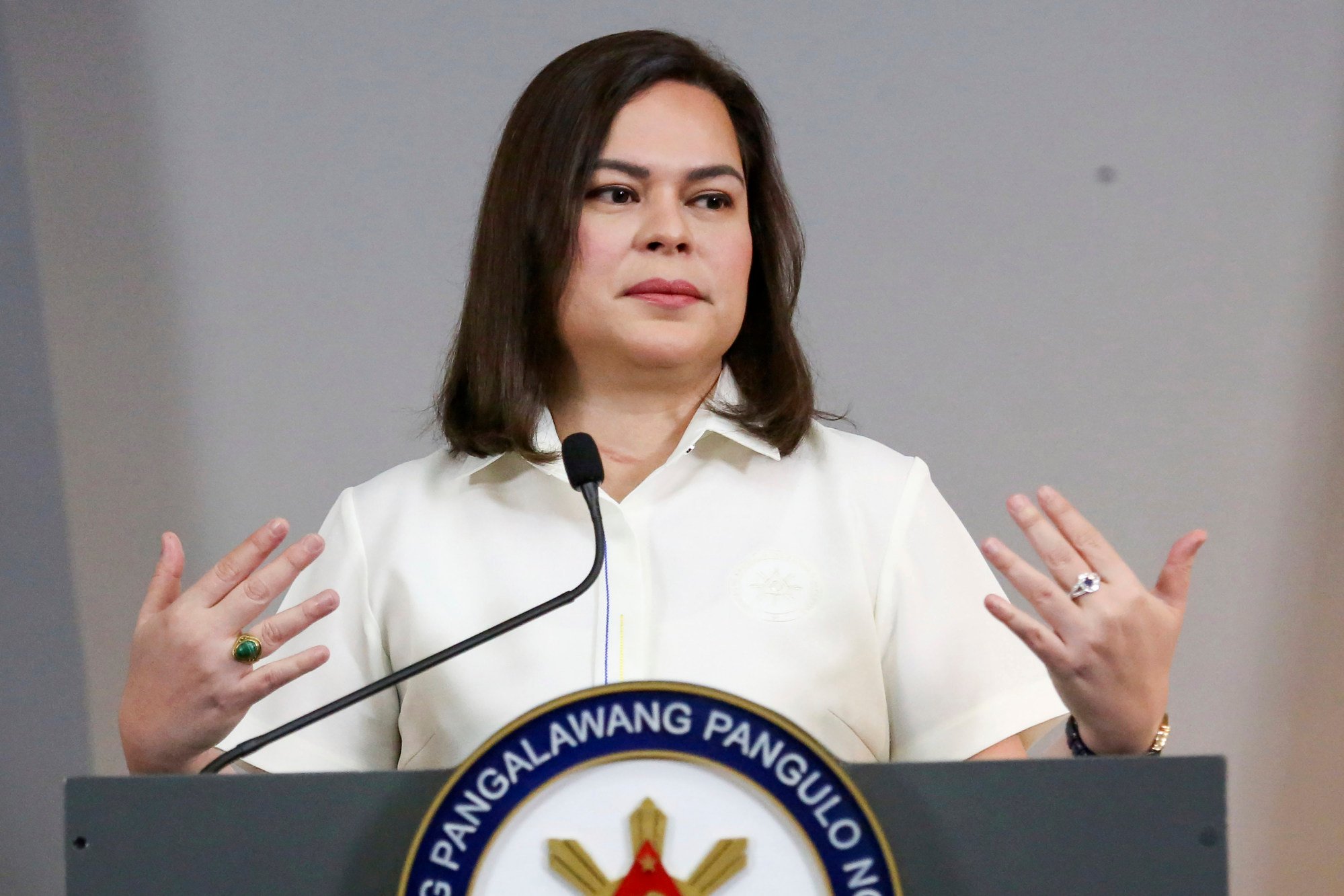
Of the 14 justices who concurred, 12 were appointed by the vice-president’s father, former leader Rodrigo Duterte. Justice Marvic Leonen, who delivered the majority opinion, was appointed by the late president Benigno Aquino. Even Marcos’ lone appointee joined the majority. Only one justice abstained, citing “official business”.
The impeachment saga began in February, when the House of Representatives impeached Duterte-Carpio and sent the case to the Senate. But instead of proceeding, the Senate repeatedly stalled, pointing to procedural concerns and scheduling conflicts, until the Supreme Court’s intervention last week.
Legal scholars have decried the ruling as “judicial overreach”, with some alleging “factual errors” in the judgment – warning that the decision sets a precedent that could shield officials from future accountability.
Duterte-Carpio’s impeachment was not “technically” dead in the water, law professor and former congressman Barry Gutierrez told This Week in Asia. “But it is certainly on the brink of death after this mortal blow from the Supreme Court.”
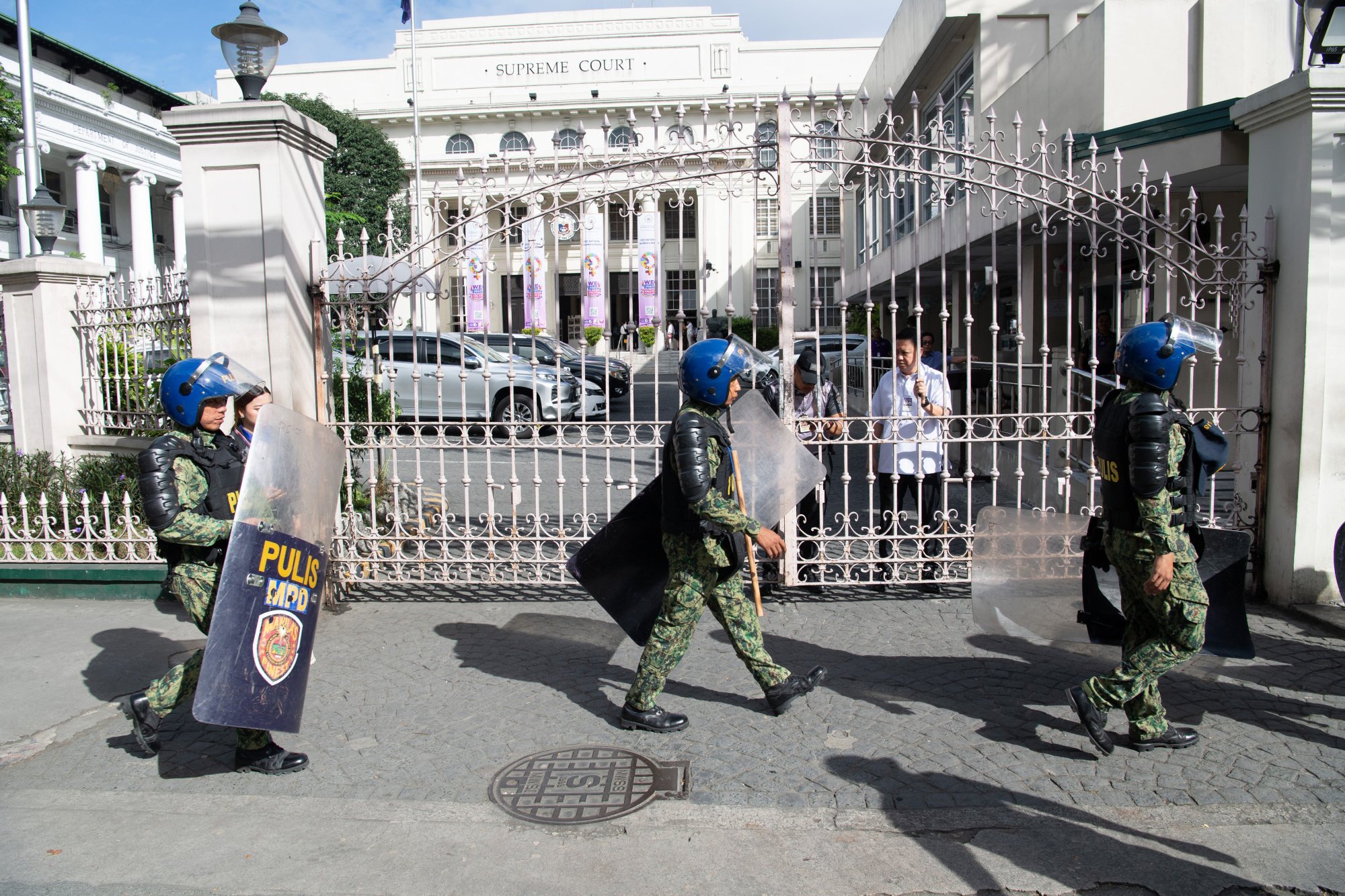
Disputed timelines
The Supreme Court’s 97-page decision turned on the ambiguous start date for the constitutional one-year time limit.
Leonen, the ruling’s author, acknowledged two possible interpretations: when a complaint is referred to the House’s justice committee, or when it has been dismissed by the House. He ruled that, since three earlier complaints against Duterte-Carpio had been archived on February 5 and “therefore deemed terminated or dismissed”, the fourth – filed and sent to the Senate that same day – violated the one-year limit.
Civil society coalition 1Sambayan, which counts retired justices among its leadership, has disputed the court’s chronology.
“House records clearly show the [fourth] complaint was filed and acted upon before the dismissal of the preceding three complaints and before the House adjourned on February 5,” it said in a statement, arguing that the one-year time limit should only have commenced after adjournment.
“The Supreme Court’s factual errors invalidate its conclusion,” it added, stating that the decision “rests on a flawed understanding of the timeline and procedural actions taken by the House”.
Election jockeying
Beneath the legal wrangling lies a bitter dynastic struggle ahead of the 2028 presidential election. Surveys show that Duterte-Carpio is currently the front runner to succeed Marcos, with House Speaker Martin Romualdez trailing badly and her political allies among the Senate’s membership focused on her electoral prospects rather than the charges against her of corruption, betrayal of public trust and threats against Marcos, his wife and Romualdez.
Unhandled type: inline-plus-widget {“type”:”inline-plus-widget”}
Senate President Francis Escudero embodied the delays, repeatedly citing obscure procedural points and rescheduling the trial. “Escudero was making implausible and crude excuses – he even invented a new meaning for the word ‘forthwith’ in order to stall the trial indefinitely,” political commentator Vergel Santos, the retired publisher of the Philippine business newspaper BusinessWorld, told This Week in Asia.
Critics warn that the Supreme Court’s intervention could make future impeachments virtually impossible. “This judicial overreach done at this late stage sets a terrible precedent and has far-reaching consequences,” Senator Francis Pangilinan, president of the opposition Liberal Party, warned in a social media post on Saturday.
The court could, hypothetically, point to this ruling in future complaints against officials “accused of corruption or other high crimes” and declare them unconstitutional, he said.
Economist J.C. Punongbayan noted a further “troubling unintended consequence”: going forward, a single fake impeachment complaint, filed early with a friendly congressman’s endorsement, could shield any official for their entire term.
Accountability should not be politicised … Let the axe fall wherever it should fall, regardless of partisanshipAries Arugay, political scientist
“It means that as long as any president, vice-president, Supreme Court justice or ombudsman has a congressman friend who will endorse a fake impeachment on that official’s first day of service, the one-year rule will always be triggered,” Congressman Terry Ridon of Bicol Saro wrote in a post on Saturday.
Retired publisher Santos told This Week in Asia that he believed the delays and dithering over Duterte-Carpio’s impeachment amounted to “a conspiracy”.
“The timing is just too suspicious, [the] Senate dribbled the case for months only to bounce it back to the House questioning certain technicalities,” he said. “That appeared to signal Duterte’s camp to take the same questions to the Supreme Court, which was to prove only too willing to intervene … there’s the conspiracy.”
Dr Aries Arugay, chairman of the University of the Philippines political science department, noted the effect of the Senate’s delays. “You don’t need a PhD in political science to figure out that the inaction of the Senate opened the opportunity for the Supreme Court to intervene,” he told This Week in Asia.
The Supreme Court ruling “completely rewrites the book on impeachment as we know it,” said Gutierrez, the law professor. “It departs from the historical concept of impeachment and imposes new requirements not explicitly spelled out in the Constitution. I’m sure this will be dissected by law faculties and students intensively in the next few weeks.”
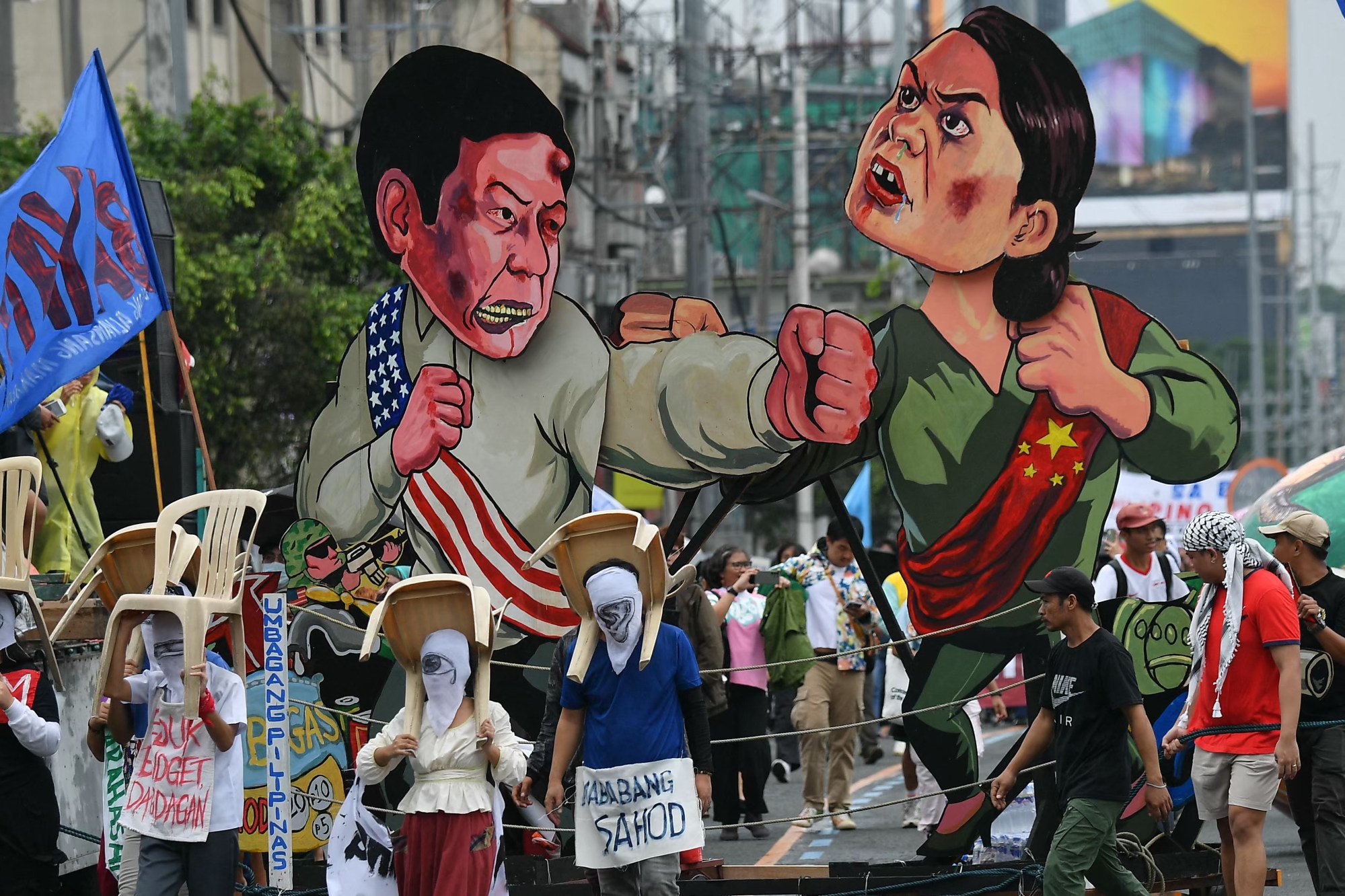
Clash of clans
Observers agree that the impeachment fight is less a battle for accountability than a contest between the Marcos and Duterte dynasties.
“The impeachment was essentially a move in a bitter dynastic war between the Marcoses and the Dutertes. It would be a mistake for the progressive forces … to align themselves with either force in this struggle,” economist and former congressman Walden Bello wrote on social media.
“Accountability should not be politicised,” political scientist Arugay told This Week in Asia. “Let the axe fall wherever it should fall, regardless of partisanship.”
Even before the Supreme Court had issued its ruling, civil society organisations, the Catholic Church and business leaders were pressing for the trial to proceed.
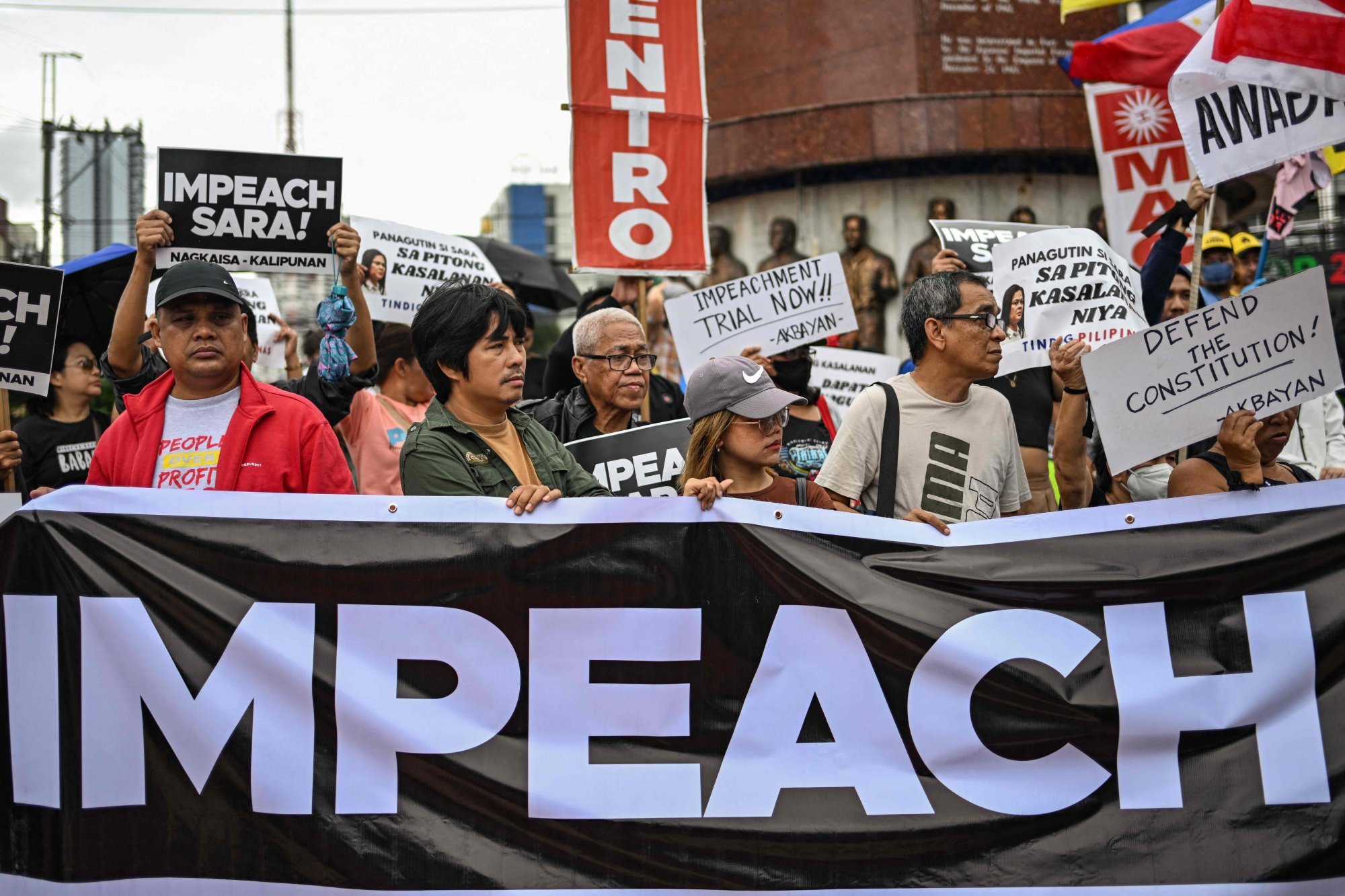
“We believe [the trial] is an important test of the rule of law,” said Rafael Ongpin, executive director of the influential Makati Business Club. “There’s a very strong case against her [Duterte].”
A survey conducted in June by pollsters OCTA Research found that 78 per cent of Filipinos wanted Duterte-Carpio to face trial.
Past political crises of this sort have led to large numbers of Filipinos taking to the streets in protest, as political commentator Manolo Quezon observed.
“Everyone is sniffing the air to see if anyone will do anything,” he said.